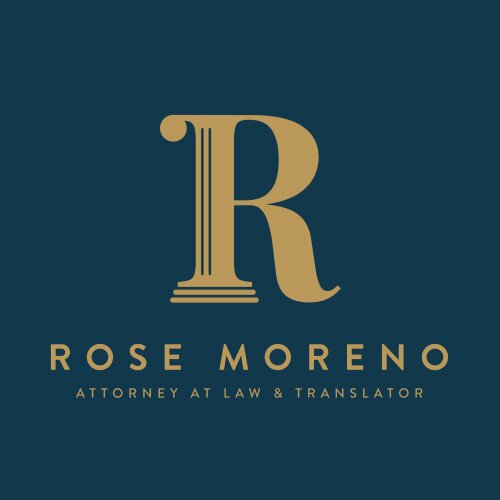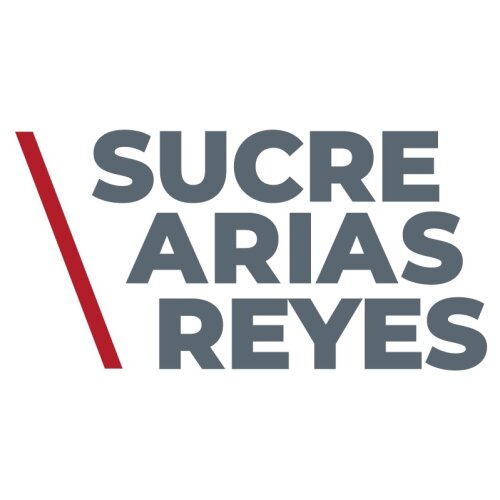Best Inheritance Law Lawyers in Panama City
Share your needs with us, get contacted by law firms.
Free. Takes 2 min.
List of the best lawyers in Panama City, Panama
1. About Inheritance Law in Panama City, Panama
Inheritance law in Panama City, Panama is primarily governed by the Civil Code of Panama, with procedures carried out through the courts and the Public Registry. It covers both testamentary succession (will based transfers) and intestate succession (when someone dies without a valid will). The law also addresses how assets are inventoried, valued, and distributed among lawful heirs. In Panama City, the process typically involves court supervision, inventory and appraisal of estate assets, and registration of transfers with the Public Registry.
Key concepts include the rights of heirs, the notion of legitimate shares for forced heirs, and the duties of executors or administrators. The local practice often requires coordination among lawyers, notaries, and court personnel to ensure an orderly transfer of title and payment of any obligations. For people dealing with real estate or businesses in Panama City, understanding how the succession rules apply to those assets is especially important.
2. Why You May Need a Lawyer
Here are concrete, real-world scenarios in Panama City where hiring a qualified inheritance lawyer is essential.
- A spouse and children dispute the validity or contents of a will filed in the Panama City public registry or probate court, claiming the document was forged or improperly executed.
- You are the surviving spouse or child and need to establish your rightful legitimate share under the Civil Code, especially when other relatives contest the allocation of assets.
- A deceased person owned a condo or commercial property in Panama City and the heirs must complete an inventory, hire appraisers, and obtain a court order to transfer title.
- There is a conflict over who should be administrator of the estate, or you need to remove an administrator for mismanagement or breach of duties.
- You are foreign-born or hold assets abroad and require guidance on how a Panamanian will interact with international estates, including cross-border heirs and foreign wills.
- You must resolve claims by creditors or creditors’ rights in the estate, including ensuring proper notice and filing of debts within the probate process.
Working with a lawyer in Panama City helps ensure proper procedural steps, accurate asset valuation, and timely filing with the court and the Public Registry. An attorney or legal counsel can clarify the duties of executors, identify heirs, and help you avoid delays caused by improper filings or missing documents.
3. Local Laws Overview
Panama’s inheritance framework rests on several core statutes and regulatory rules. The main sources include the Civil Code, the Public Registry law, and the Notarial framework that governs how wills are drafted and authenticated.
- Civil Code of Panama - Governs testamentary and intestate succession, the right of heirs, calculation of legitimate shares, and the general rules for administering estates. It provides the framework for how assets are distributed when there is a will and when there is no will.
- Public Registry Law - Regulates the registration of real estate transfers, inventories, partitions, and the inscription of wills and other estate matters. In Panama City, many probate actions involve filings with the Public Registry to effectuate title changes.
- Notarial Law - Defines notaries' authority to draft and certify wills, execute public or closed wills, and supervise authentic acts related to succession. Notaries often play a central role in the probate process before court involvement.
Recent trends in Panama City show a push toward clearer documentation and more streamlined registry procedures, with courts and registries increasingly coordinating to reduce delays in estate administration. It remains important to verify the current form and requirements of documents with the relevant authorities before filing.
Source guidance on inheritance processes and registry procedures in Panama is available through official Panamanian judicial channels and international legal references.
Poder Judicial de la República de Panama - Official portal for court procedures related to succession, probate, and appeals.
World Bank - Provides macro legal framework and reform notes that can illuminate cross-border inheritance considerations and business asset transfers in Panama.
4. Frequently Asked Questions
What is inheritance law in Panama City, Panama?
Inheritance law governs how a deceased person’s assets are distributed. It includes wills, intestate succession, and the roles of executors or administrators in Panama City.
What is the difference between a will and intestate succession?
A will is a document stating how assets should be distributed. Intestacy applies when there is no valid will, and the law determines heirs and shares.
How do I start a probate case in Panama City?
Typically you file a petition with the court, submit the death certificate, inventory of assets, and identify heirs. The process is supervised by a judge and may involve the Public Registry.
When can I challenge a will in Panama City?
You can challenge a will if there are concerns about validity, formality, undue influence, or capacity at the time of execution. A judge reviews such challenges.
Where do I file a will or estate matter in Panama City?
Filings usually occur with the competent civil or probate court in Panama City, along with required documents and copies for the Public Registry where applicable.
Why do I need a Panama City lawyer for inheritance matters?
A lawyer helps ensure proper execution, compliance with registration requirements, and timely resolution of disputes or challenges among heirs.
Can a foreign will be probated in Panama?
Foreign wills may be recognized, but they typically require translation, authentication, and a court review to ensure validity and compatibility with Panamanian law.
Should I hire a notary for estate planning in Panama City?
Notaries are central to drafting and authenticating wills and certain estate documents. A lawyer can advise on when notarial involvement is appropriate.
Do I need to pay taxes related to inheritance in Panama?
Panama has specific tax rules for estate and inheritance matters; a local attorney or tax advisor can explain obligations and exemptions applicable to your case.
How long does probate typically take in Panama?
Probate timelines vary by complexity, assets, and court caseload. In Panama City, simple cases may resolve in several months, while complex estates can extend beyond a year.
What documents should I gather for an inheritance filing?
Common documents include death certificates, family records, titles to property, asset appraisals, wills, and identification for all heirs. A lawyer can provide a tailored checklist.
Is there a difference between a public will and a closed will in Panama City?
Yes. A public will is created before a notary and witnesses, while a closed will is a sealed instrument signed by the testator and opened after death in court.
5. Additional Resources
These resources can help you understand and navigate Inheritance Law in Panama City:
- Poder Judicial de la República de Panamá - The judicial branch administers probate, succession hearings, and appeals. It provides procedural guidance and court calendars for inheritance matters. Visit site
- PANAMA Public Registry (Registro Publico) - Responsible for recording property interests, wills, and partitions. It ensures proper inscription of estate transfers in real property records. General registry guidance
- Panama Bar Association and Notarial Organizations - Provide professional standards, directories of qualified solicitors and notaries who practice in Panama City and handle testamentary documents. Professional resources
Note: for official, jurisdiction-specific guidance, rely on the court system and recognized professional bodies. If you need precise procedural steps, consult the official portals linked above or ask a local attorney for current forms and deadlines.
6. Next Steps
- Define your goals and the type of inheritance matter you face (will contest, intestate distribution, guardianship for minors, etc.).
- Identify potential lawyers or legal counsel who practice Inheritance Law in Panama City and request a brief consultation.
- Collect and organize key documents (death certificate, will, asset list, titles, identification for heirs) before the meeting.
- Verify each candidate’s licensing status with the local bar association and confirm they have experience with Panama City probate cases.
- Ask for a written estimate of fees and a clear outline of the steps they will take, including anticipated timelines.
- Choose the attorney who best explains the process, communicates clearly, and provides a realistic plan for probate or dispute resolution.
- Proceed with engagement, sign a formal retainer, and begin the inheritance process with a detailed action plan and milestones.
Lawzana helps you find the best lawyers and law firms in Panama City through a curated and pre-screened list of qualified legal professionals. Our platform offers rankings and detailed profiles of attorneys and law firms, allowing you to compare based on practice areas, including Inheritance Law, experience, and client feedback.
Each profile includes a description of the firm's areas of practice, client reviews, team members and partners, year of establishment, spoken languages, office locations, contact information, social media presence, and any published articles or resources. Most firms on our platform speak English and are experienced in both local and international legal matters.
Get a quote from top-rated law firms in Panama City, Panama — quickly, securely, and without unnecessary hassle.
Disclaimer:
The information provided on this page is for general informational purposes only and does not constitute legal advice. While we strive to ensure the accuracy and relevance of the content, legal information may change over time, and interpretations of the law can vary. You should always consult with a qualified legal professional for advice specific to your situation.
We disclaim all liability for actions taken or not taken based on the content of this page. If you believe any information is incorrect or outdated, please contact us, and we will review and update it where appropriate.











